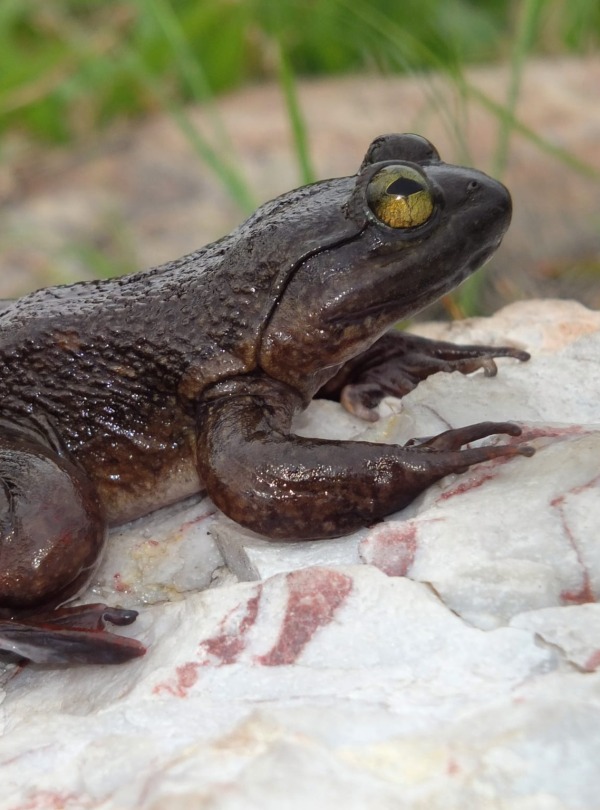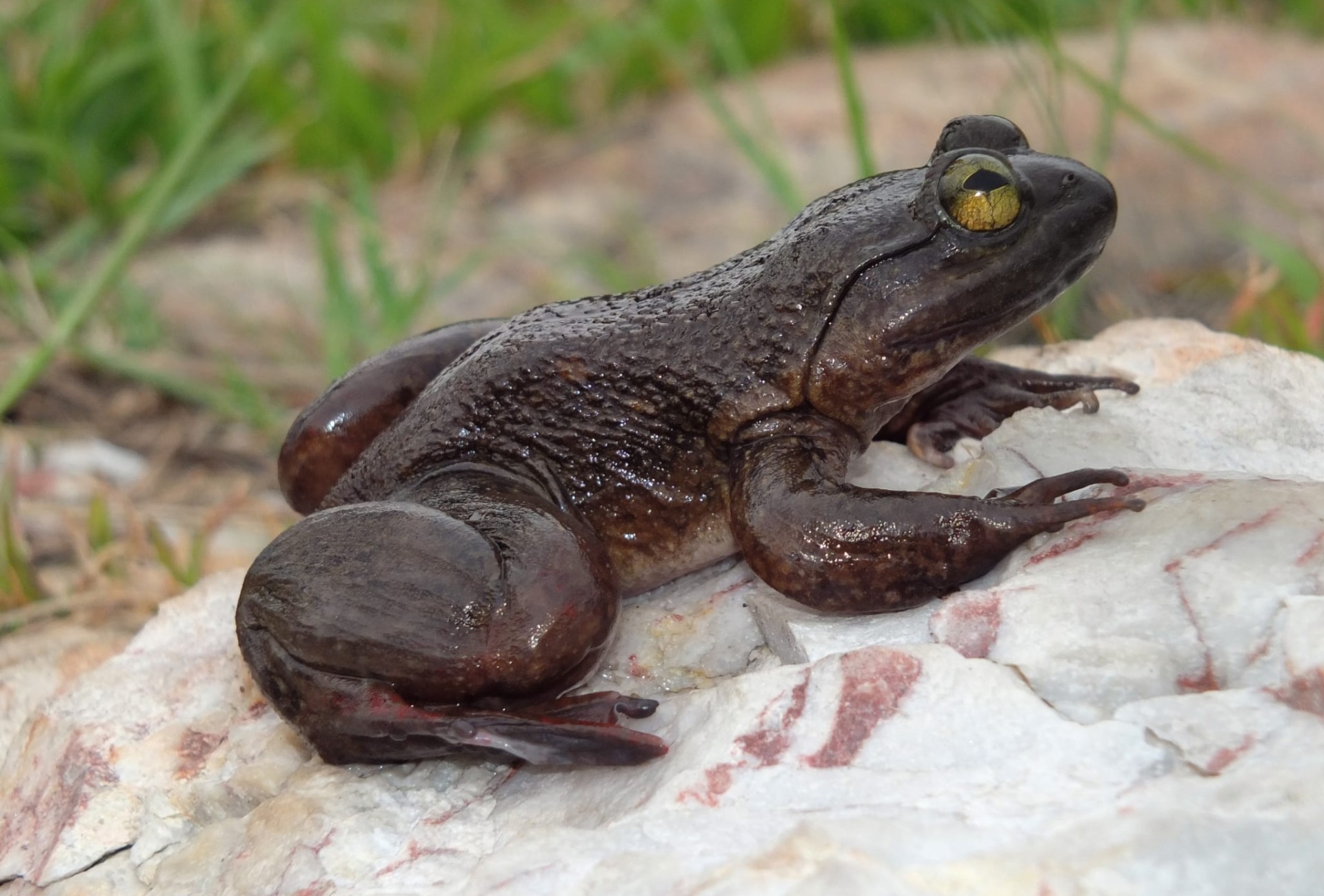
Expanding the Onepone Refuge for Amphibians in Ghana
Support More Work Like ThisSupport More Work Like ThisGhana’s Togo-Volta highlands harbor some of the last remaining forests in the Dahomey Gap, a savannah corridor separating the upper and lower Guinea forest in West Africa.
-
Species at Risk
Togo Slippery Frog (CR), Hooded Vulture (CR), Ukami Reed Frog (EN), Boxiana Cola (EN), Ivory Coast Frog (EN)
-
Carbon stored
Not calculated for this project*
*(metric tons of CO2 equivalents) -
Partner
Herp Conservation Ghana
-
1,285 Proposed Acres Conserved by
Designation
-
Project Cost: $339,596
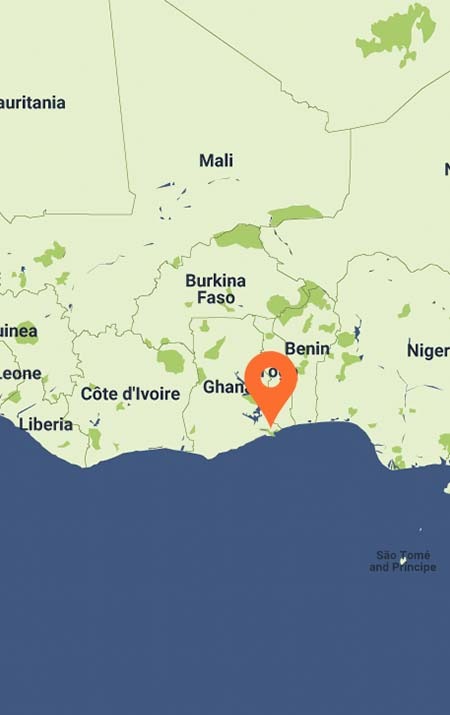
1,285
Ghana’s Togo-Volta highlands harbor some of the last remaining forests in the Dahomey Gap, a savannah corridor separating the upper and lower Guinea forest in West Africa.
-
Species at Risk
Togo Slippery Frog (CR), Hooded Vulture (CR), Ukami Reed Frog (EN), Boxiana Cola (EN), Ivory Coast Frog (EN)
-
Carbon stored
Not calculated for this project*
*(metric tons of CO2 equivalents) -
Partner
Herp Conservation Ghana
-
1,285 Proposed Acres Conserved by
Designation
-
Project Cost: £246,084

1,285
Ghana’s Togo-Volta highlands harbor some of the last remaining forests in the Dahomey Gap, a savannah corridor separating the upper and lower Guinea forest in West Africa.
These remnant highland forests are home to many species isolated from the more expansive rainforests to the west and east. With high levels of range restricted species, this forest is a priority conservation site.
The area is home to both threatened and endemic species, including the Critically Endangered Hooded Vulture. In addition, the last viable population of the Critically Endangered Togo Slippery Frog is found here. But expanding human settlements, unsustainable farming and hunting threaten this forest habitat. For this unique ecosystem to survive, protection is critical.
Rainforest Trust and local partner Herp Conservation Ghana seek $339,596 to protect, restore and manage 1,285 acres of the Togo-Volta highlands. This project will expand the 847-acre Onepone Endangered Species Refuge, jointly created in 2018, while improving the livelihoods of communities dependent on this mountainous forest ecosystem.
Explore Ghana
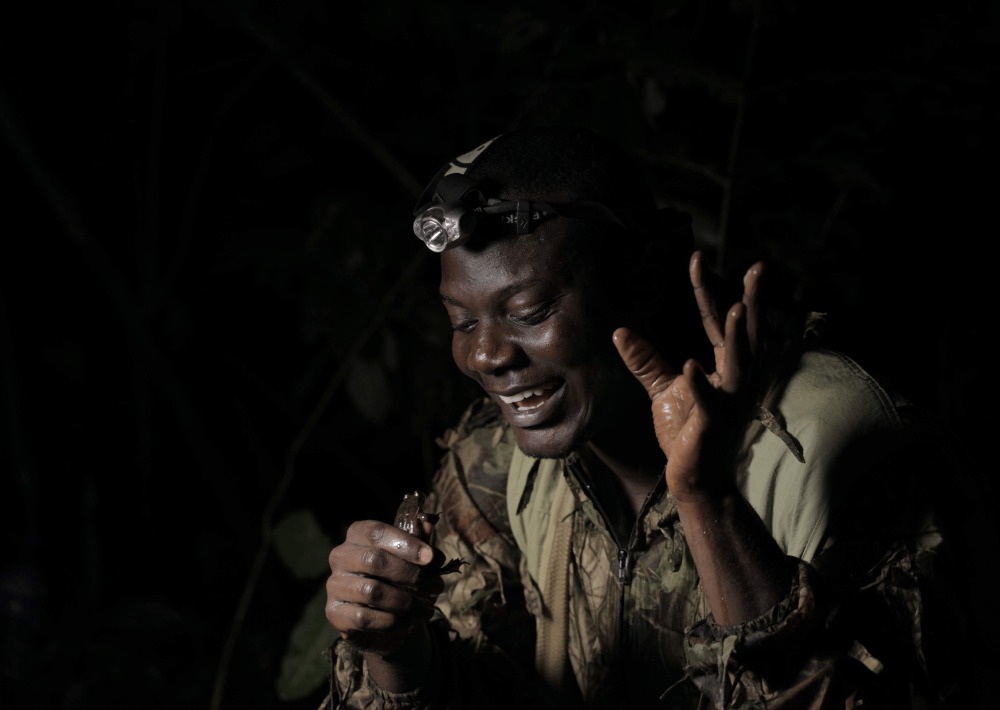
Herp Conservation Guardian, Caleb Ofori, discovering the Togo Slippery Frog in the Onepone Refuge in the Togo-Volta highlands of Ghana.
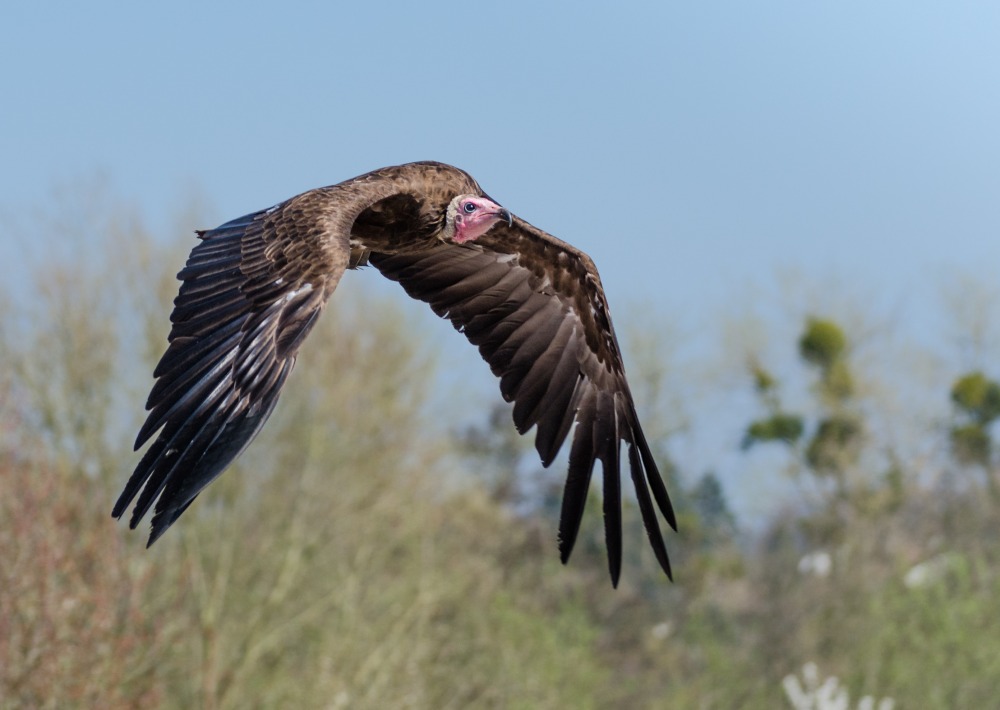
The Critically Endangered Hooded Vulture courtesy of Michael Jansen / Flickr
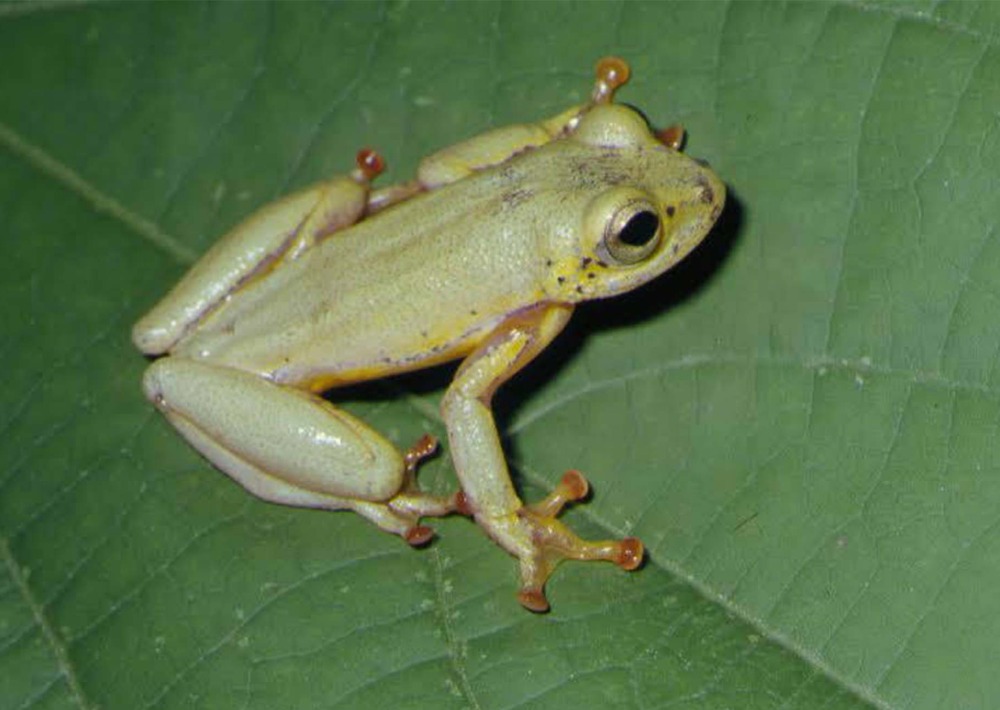
The Endangered Reed Frog courtesy of Herp Conservation Ghana
This proposed expansion area is a hilly, forested landscape with high levels of biodiversity. At least 222 species of plants, 152 birds, 24 mammals, 20 amphibians and 76 butterflies live in this small, biodiversity-rich, forested area.
Many of the species are endemic and range restricted including the Critically Endangered Togo slippery frog also known locally as the ‘whistling’ frog (Conraua derooi). The Endangered Ukami reed frog (Hyperolious torrentis), endemic to the Togo-Volta Hills, has adapted to waterfalls in undisturbed forest sites which are becoming increasingly rare.
The species inventory at the site is far from complete, but it is expected that this unexplored high altitude humid upland forest harbors a wealth of endemic and threatened species that are awaiting formal documentation and descriptions.
The Volta swallowtail butterfly (Papilio nobicea) recently recorded, is endemic to the site and few surrounding areas in the Togo-Volta range.
The loss of habitat to agriculture, logging and expanding settlements is the greatest threat to the unique biodiversity of the Togo-Volta hills. Suitable farming land is rare in this mountainous and rocky landscape. Poor farming practices quickly exhausts the existing arable land, reducing crop yields and increasing the demand for new land.
This beautiful landscape also attracts wealthy individuals from the cities who buy land for commercial enterprises, such as hotels. A plan to restrict development from inching closer to key biodiversity sites is crucial to protect endemic species in the area.
Hunting also threatens the long-term stability of many endangered species in and around the project area. Traditional hunting tribes are widespread in the area and threaten the future of Ghanaian wildlife if conservation education and alternative livelihood activities are not encouraged in the local population.
In 2018, Rainforest Trust and and local partner Herp Conservation Ghana established the Onepone Refuge. This expansion will protect and additional 1,285 acres of the last remaining forest in the Togo-Volta highlands, and will increase the size of Onepone Refuge to 2,166 acres.
By working with local communities to create and expand the protected area, further loss of critical wildlife habitat will be prevented by raising awareness. Strengthening community governance structures will enhance local capacity to manage wildlife and reduce hunting. Plans include efforts to restore degraded forest habitats in ecologically sensitive areas to provide perpetual benefits to communities and enhance habitat quality for species dependent on upland, moist, semi-deciduous forest. Additionally, the project will develop opportunities to increase ecotourism to the Refuge, that will not only sustain conservation efforts but also improve local livelihoods.
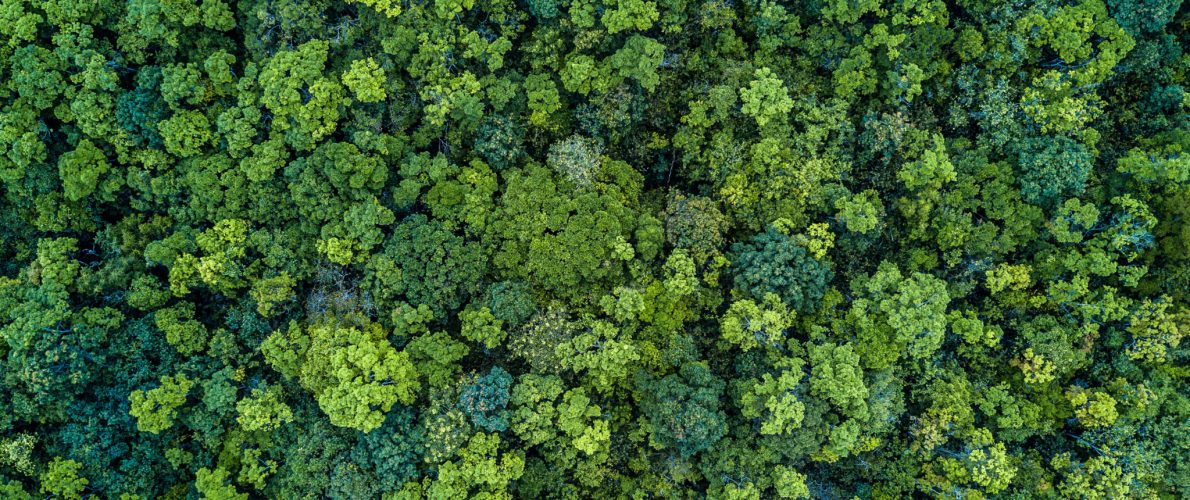
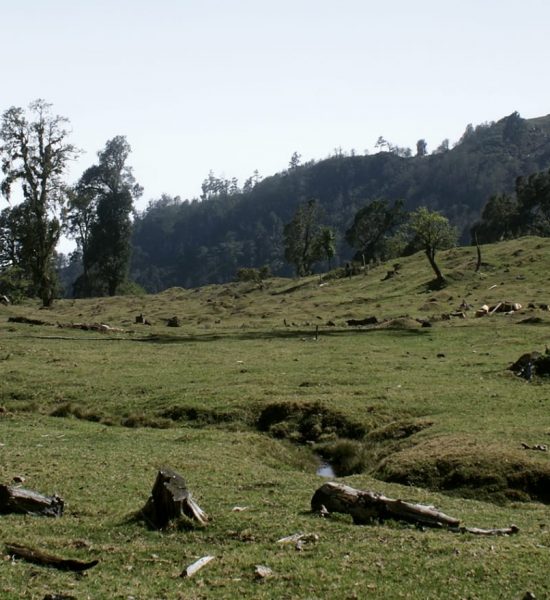
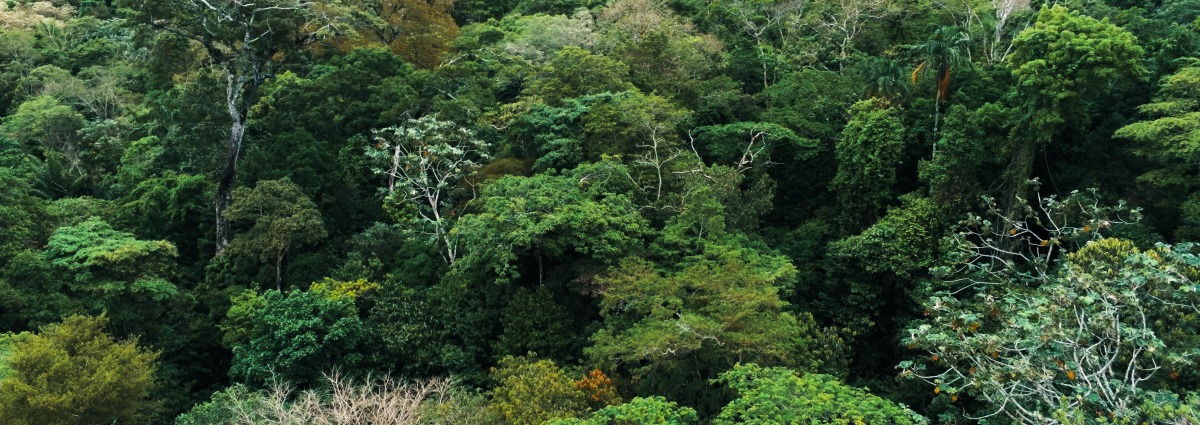
Partnering to Save Rainforest
Our partners’ ability to work with their governments and build strong connections with local communities ensures the successful implementation of our projects.
Learn More About This PartnerLearn More About This Partner
